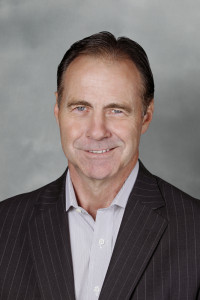Welcome to “Free-Rider Friday.” Most of our shows are “topic” driven, where we dive deep into one subject. Free-Rider Fridays are designed to be “event” driven—whatever issues are in the news that we (or you) find worthy of commentary. In economics, free riding means reaping the benefits from the actions of others and consequently refusing to bear the full costs of those actions. This means Ed and Ron will free ride off of the news, and each other, with no advanced knowledge of the events either will bring up.
You can also comment on Twitter at #ASKTSOE.
Our New Facebook Page
Like us on Facebook.
And Please leave a review of the show on iTunes.
Ed’s Topics
Ed read an email from Jay, a listener in San Antonio. Jay asked Ron when he was introduced to the big libertarian thinkers, including Ludwig von Mises.
Jay also asked Ron about Edmund Burke and natural rights, and how long Ed has been a Libertarian.
Ed discussed the Tinder Plus App, and how it’s priced.
Ed mentioned how Salesforce reacted to a proposed law in Indiana that allows businesses to discriminate against gay and lesbian couples, and also Audra McDonald's reaction to it.
Ron’s Topics
Bob Cross, our guest on the March 13, 2015 show, told a story of how Marriott did a primitive form of Revenue Management in the 1950s. It turns out, so did my Dad in the barbershop, with respect to kids haircuts on Saturday’s, the busiest day of the week.
An article in the January 19, 2015 issue of The Economist, “When the chips are down,” about McDonald’s sales being down 4.6% year-over-year as of November 2014.
In contrast, fast-casual restaurants such as Shake Shack, Nando’s, Chipotle Mexican Grill, and Panera Bread, are up 10.5%. Four reasons are cited:
Fresh food
High-level customization of your order
Clever pricing, some dishes same price as fast food, but better at nudging to pricier dishes and extras, get an extra 40% out of each diner’s wallet
Each outlet offers a touch of distinctiveness (better before cheaper)
Other random topics
We discussed the concept of “Nudging,” and the book by Cass Sunstein and Richard Thaler, Nudge.
We also discussed an email question from listener Buyan:
Hi Ron,
I am an active listener on your books and podcasts. I currently lead an IT consulting company where we do custom development and CRM implementation projects. I have several questions on the business model which makes sense from your podcast.
From a consulting company perspective, I am struggling with defining value for my customers. Most of our clients use our services for complex, integration needs of their business. Do you have some examples of how other professional service firms define value or create value ?
I am now implementing the 3 price point approach which you had suggested instead of the previous one price which did not work for us. I would like to differentiate our firm with a zappos like service experience but our struggle is communicating that as a value to our clients. Are there any pointers on how that would work for an IT consulting company?
So please let me know.
Thanks,
Buyan
Visit Our Sponsors
Check out our new eBook, The Soul of Enterprise: Dialogues on Business in the Knowledge Economy.












